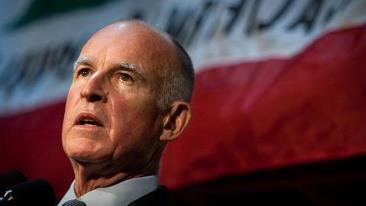Famed fantasy and science fiction author Ray Bradbury died on Tuesday night at the age of 91. His works have penetrated our consciousness, the mere mention of their titles, “The Martian Chronicles”, “The Illustrated Man”, “Fahrenheit 451”, “Something Wicked This Way Comes”, “Dandelion Wine”, evoke a range of emotions and memories. Like many, I absorbed his works, in school, on television, in movies, and even in the town which I used to live. For a time I lived in Waukegan, Illinois, the birthplace of Bradbury, and his living spirit haunted that once prosperous place, a city he called “Green Town.”
“I do not use my intellect to write my stories and books; I have a gut reaction to the things that my subconscious gives me. These are gifts that arrive early mornings and I get out of bed and hurry to the typewriter to get them down before they vanish.”
I have no doubt that many wonderful and heartfelt tributes will be forthcoming, and I don’t pretend that I could rival those, but I would like to briefly honor his memory by bringing up what may be one of his singular achievements: popularizing the idea of Halloween as a pagan holiday. Bradbury’s 1972 novel “The Halloween Tree” reminded its many readers that the roots of the now-secular holiday of trick-or-treating had ancient roots in pre-Christian tradition. That Christianity itself was just another layer of history on the traditions of ancestor worship, and making offerings to the spirits.
“Anyone could see that the wind was a special wind this night, and the darkness took on a special feel because it was All Hallows’ Eve. Everything seemed cut from soft black velvet or gold or orange velvet. Smoke panted up out of a thousand chimneys like the plumes of funeral parades. From kitchen windows drifted two pumpkin smells: gourds being cut, pies being baked.”
When you see countless articles in October certain in the inherent pagan origin and flavor of Halloween, know that you partially have Bradbury to thank for that. Bradbury certainly didn’t invent the notion of Halloween as the continuation of a pre-Christian holiday, but he served it to multiple generations of fans as an adventure, one they gladly took again and again. It was a journey that a new generation enjoyed in 1993, when a cartoon adaptation of The Halloween Tree appeared on television, and then aired for years after that, priming many for the popularization of witches in the mid-to-late 1990s (Is it mere coincidence that the very first episode of “Charmed” references Bradbury?).
httpv://www.youtube.com/watch?v=utaDC6VOYSY
Of course, Bradbury greatest achievement was stirring our imaginations, creating new worlds we could explore, and warning us of where we could go if we’re not careful. Still, I think his contribution to changing our perceptions of Halloween can’t be underestimated, and for that we should give special honor to Bradbury. He understood the power of imagination and wonder, how those tools can change perceptions in accordance with a writer’s will, and we are all richer for it.














